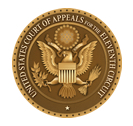On March 13, the FCC's Office of Managing Director announced that the Universal Service Fund (USF) contribution factor for the second quarter of 2025 will be 36.6%. Absent intervention by the FCC's Commissioners, the proposed rate will soon go into effect.
The expected rate hike to 36.6% appears to result in another new all-time high for the "USF Tax." It is far higher than the rate from a few years ago.
The U.S. Court of Appeals for the Fifth Circuit rightly called USF surcharges an unconstitutional "USF Tax." They are imposed on voice consumers based on a percentage of the long-distance part of their monthly bills. The money paid by consumers is collected by the voice carriers and passed on to the Universal Service Administrative Company (USAC), the private corporation established by the FCC to administer the USF program and dole out subsidies to program recipients.
The Supreme Court granted a writ of certiorari in FCC v. Consumers' Research, a case involving the issue of whether the USF contribution mechanism is constitutional under the Article I, Section 1 Legislative Vesting Clause. The Court will hold oral arguments in the case on March 26.
USF reform is one of the topics that is sure to be part of the discussion at the Free State Foundation's upcoming Seventeenth Annual Policy Conference – #FSFConf17. The conference will be held in Washington, D.C. on March 25. Conference registration and the conference agenda are available online.










